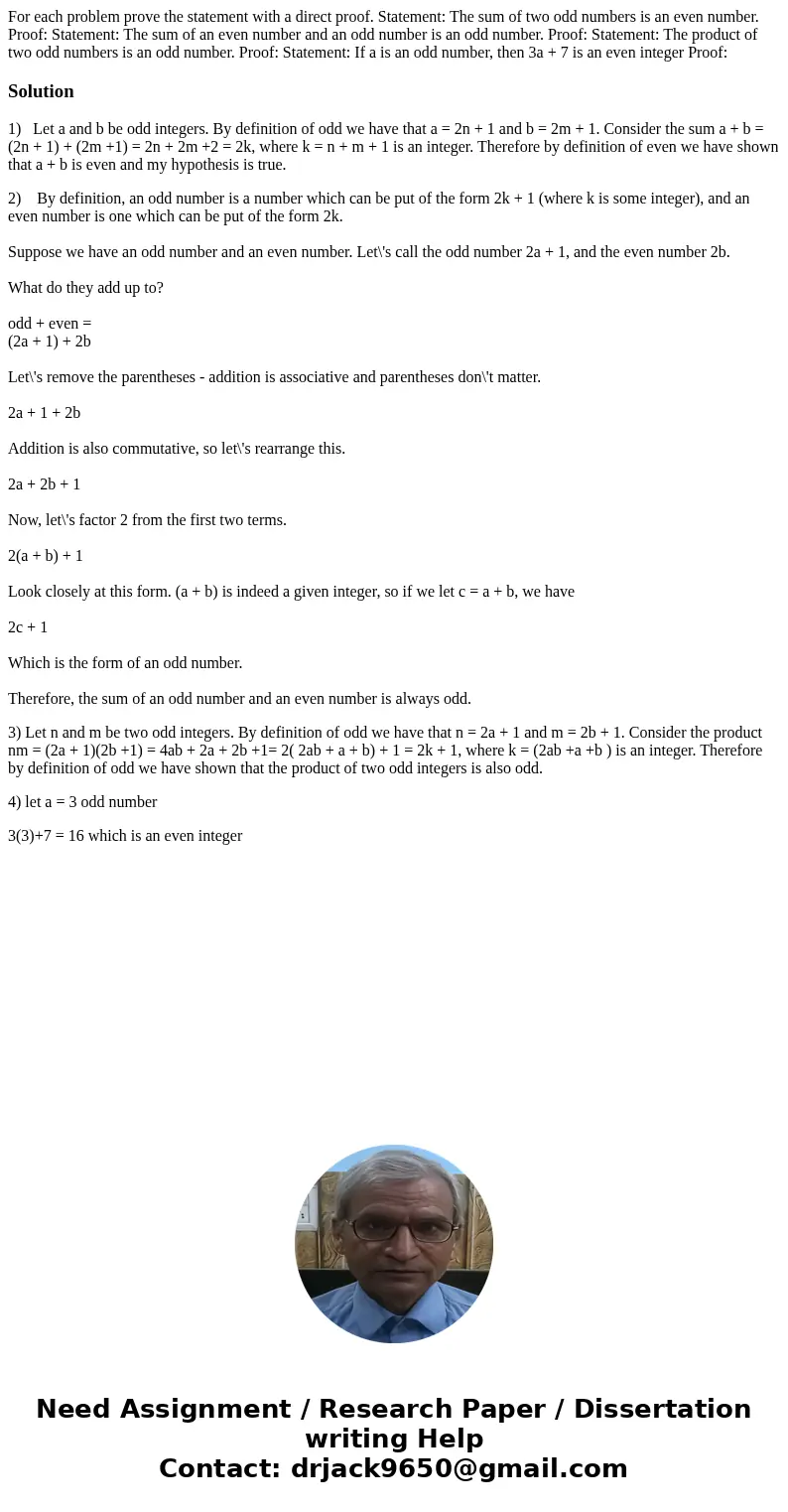For each problem prove the statement with a direct proof Sta
Solution
1) Let a and b be odd integers. By definition of odd we have that a = 2n + 1 and b = 2m + 1. Consider the sum a + b = (2n + 1) + (2m +1) = 2n + 2m +2 = 2k, where k = n + m + 1 is an integer. Therefore by definition of even we have shown that a + b is even and my hypothesis is true.
2) By definition, an odd number is a number which can be put of the form 2k + 1 (where k is some integer), and an even number is one which can be put of the form 2k.
Suppose we have an odd number and an even number. Let\'s call the odd number 2a + 1, and the even number 2b.
What do they add up to?
odd + even =
(2a + 1) + 2b
Let\'s remove the parentheses - addition is associative and parentheses don\'t matter.
2a + 1 + 2b
Addition is also commutative, so let\'s rearrange this.
2a + 2b + 1
Now, let\'s factor 2 from the first two terms.
2(a + b) + 1
Look closely at this form. (a + b) is indeed a given integer, so if we let c = a + b, we have
2c + 1
Which is the form of an odd number.
Therefore, the sum of an odd number and an even number is always odd.
3) Let n and m be two odd integers. By definition of odd we have that n = 2a + 1 and m = 2b + 1. Consider the product nm = (2a + 1)(2b +1) = 4ab + 2a + 2b +1= 2( 2ab + a + b) + 1 = 2k + 1, where k = (2ab +a +b ) is an integer. Therefore by definition of odd we have shown that the product of two odd integers is also odd.
4) let a = 3 odd number
3(3)+7 = 16 which is an even integer

 Homework Sourse
Homework Sourse